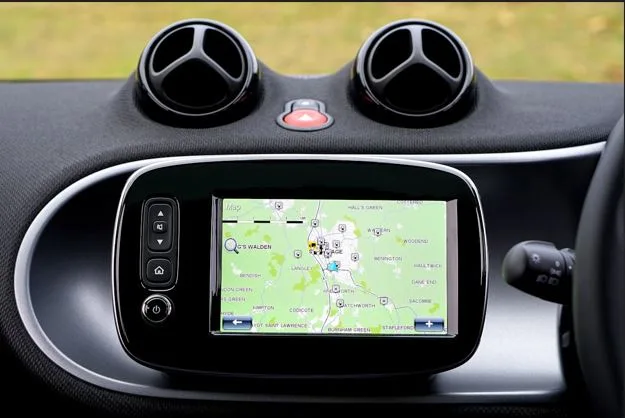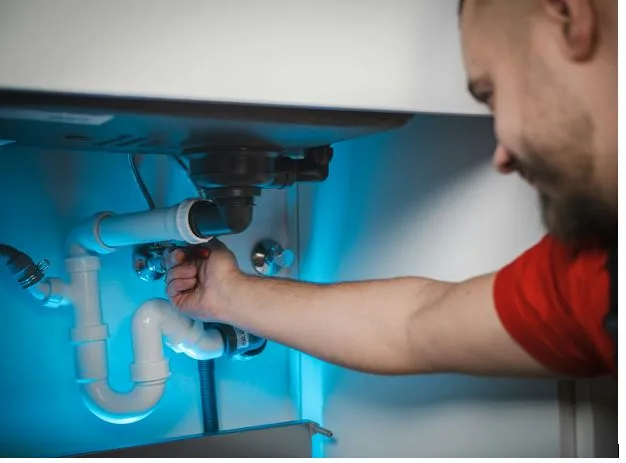How GPS Tracking Helps Small Businesses Manage Their Fleets
For small businesses that rely on vehicles for deliveries, service calls, or transportation, managing a fleet efficiently is a critical component of success. However, fleet management is no easy task, especially without the right tools. That’s where GPS tracking technology comes in—offering small businesses an accessible, cost-effective way to streamline operations, reduce costs, and improve customer satisfaction. Solutions like LiveViewGPS provide real-time insights that make it easier for business owners to monitor vehicles and reduce operating costs.
What Is GPS Tracking for Fleets?
GPS tracking involves using satellite technology to monitor the location and movement of vehicles in real-time. A GPS device installed in each vehicle sends data to a centralized platform, allowing fleet managers to see where every vehicle is, monitor driving behaviour, track routes, and analyse various performance metrics.
For small businesses, GPS tracking offers more than just knowing where their vehicles are it provides actionable insights that improve efficiency and safety while reducing operational costs.
Key Benefits of GPS Tracking for Small Business Fleets
- Improved Vehicle Utilization
One of the biggest challenges for small business owners managing a fleet is maximizing vehicle use without overburdening drivers or causing excessive wear and tear. GPS tracking gives you real-time visibility of your entire fleet, so you can allocate vehicles and drivers more effectively.
For example, if you notice that certain vehicles are underused, you can assign them to additional routes or tasks, improving productivity. Conversely, you can avoid overusing others, which helps extend the lifespan of your vehicles and reduces maintenance costs.
- Enhanced Route Planning and Efficiency
GPS tracking systems come with built-in route optimization features, enabling you to plan the most efficient routes based on traffic, distance, and delivery windows. This means drivers spend less time on the road, which reduces fuel consumption and wear on vehicles.
Better routes also translate to faster deliveries and improved customer satisfaction an essential factor for small businesses competing against larger companies.
- Cost Savings on Fuel and Maintenance
Fuel is often one of the highest expenses for businesses with fleets. GPS tracking allows you to monitor driver behaviour, such as excessive idling, speeding, or harsh acceleration, which can all contribute to wasted fuel.
By addressing these behaviours through coaching or incentives, small businesses can reduce fuel consumption significantly. Additionally, GPS data can alert you to maintenance needs before breakdowns occur, allowing you to schedule timely repairs that prevent costly downtime.
- Increased Driver Safety and Accountability
Driver safety is paramount for any business, and GPS tracking enhances it by monitoring driving habits in real-time. Fleet managers can identify risky behaviours like speeding, harsh braking, or rapid acceleration and address them promptly.
Knowing they are being monitored often encourages drivers to adhere to safe driving standards. This not only protects your team but also reduces the risk of accidents and liability, saving money and protecting your reputation.
- Simplified Compliance and Reporting
Many small businesses face regulatory requirements related to fleet operations, such as hours-of-service tracking, vehicle inspections, and safety audits. GPS tracking platforms often include automated reporting features that make compliance easier.
With accurate, real-time data at your fingertips, you can generate reports for regulatory agencies quickly, reducing administrative overhead and the risk of penalties.
- Enhanced Customer Service
Customers today expect timely updates on their orders or service calls. GPS tracking lets businesses provide accurate ETAs and notify customers in case of delays.
Transparency builds trust, and satisfied customers are more likely to become repeat clients or recommend your business to others, fuelling growth.
Real-World Examples: How Small Businesses Benefit
To illustrate the impact of GPS tracking, consider these examples:
- Delivery Services: A local food delivery company uses GPS tracking to monitor routes and delivery times. The company reduced average delivery times by 20%, leading to happier customers and increased repeat orders.
- Landscaping Businesses: A landscaping company uses GPS to track the location of crews and equipment, ensuring timely arrival at job sites and optimizing the use of its fleet. This has improved scheduling and reduced overtime costs.
- Plumbing and HVAC Services: Service businesses like plumbing and HVAC rely on quick dispatch of technicians. GPS tracking enables dispatchers to send the nearest available technician, reducing response times and increasing the number of daily service calls.
Choosing the Right GPS Tracking System for Your Small Business
Not all GPS tracking systems are created equal, so it’s important to select one that fits your specific needs and budget. Here are some tips:
- Consider Your Fleet Size and Vehicle Types: Some systems cater better to large fleets, while others are perfect for smaller operations.
- Look for User-Friendly Software: You want a system that is easy for both management and drivers to use, minimizing the learning curve.
- Check for Customizable Features: Features like route optimization, maintenance alerts, and driver behaviour monitoring should be adjustable based on your business needs.
- Evaluate Cost vs. Value: While cost is important, focus on the overall value the system provides in terms of efficiency gains and cost savings.
- Integration Capabilities: If you use other business management software (e.g., dispatch or CRM), check if the GPS system can integrate seamlessly.
Overcoming Common Concerns
Privacy and Trust
Some business owners worry that GPS tracking may create distrust between management and drivers. The key is transparency explain to your team why you’re implementing tracking and how it benefits everyone by improving safety and efficiency.
Installation and Maintenance
Modern GPS devices are often plug-and-play and require minimal installation effort. Many providers offer professional installation services if needed. Maintenance is typically straightforward, as most systems update automatically via cellular networks.
Data Security
Choose a GPS provider with strong data security measures to protect your business information and comply with privacy regulations.
The Future of Fleet Management for Small Businesses
As technology advances, GPS tracking systems are becoming more sophisticated, incorporating features like AI-driven analytics, predictive maintenance, and integration with electric vehicles.
Small businesses that adopt GPS tracking early gain a competitive edge by improving operational efficiency and customer service. As costs continue to decline, these tools are becoming accessible to businesses of all sizes not just large enterprises.
Conclusion
For small businesses, managing a fleet efficiently can mean the difference between success and struggle. GPS tracking technology offers powerful tools to optimize vehicle use, reduce costs, improve driver safety, and enhance customer satisfaction. By investing in the right GPS tracking system, small business owners can streamline their operations, make data-driven decisions, and position themselves for sustainable growth.
If you’re managing a fleet, whether it’s two vehicles or twenty, GPS tracking is no longer just a luxury it’s a necessity. Embrace this technology today and watch your business drive forward with confidence. And if you’re also considering infrastructure upgrades, here’s a helpful guide on what to look for in a quality concrete contractor to ensure your projects are built to last.







